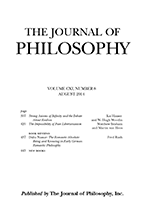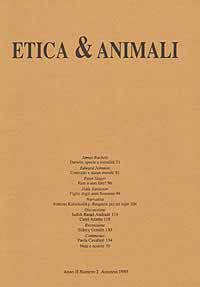
Casuistry is a process of reasoning that seeks to resolve moral problems by extracting or extending abstract rules from a particular case, and reapplying those rules to new instances. This method occurs in applied ethics and jurisprudence. The term is also used pejoratively to criticise the use of clever but unsound reasoning, especially in relation to ethical questions. It has been defined as follows:
Study of cases of conscience and a method of solving conflicts of obligations by applying general principles of ethics, religion, and moral theology to particular and concrete cases of human conduct. This frequently demands an extensive knowledge of natural law and equity, civil law, ecclesiastical precepts, and an exceptional skill in interpreting these various norms of conduct....

Peter Albert David Singer is an Australian moral philosopher who is Emeritus Ira W. DeCamp Professor of Bioethics at Princeton University. Singer's work specialises in applied ethics, approaching the subject from a secular, utilitarian perspective. He wrote the book Animal Liberation (1975), in which he argues for vegetarianism, and the essay "Famine, Affluence, and Morality", which argues the moral imperative of donating to help the poor around the world. For most of his career, he was a preference utilitarian. He revealed in The Point of View of the Universe (2014), coauthored with Katarzyna de Lazari-Radek, that he had become a hedonistic utilitarian.
In environmental philosophy, environmental ethics is an established field of practical philosophy "which reconstructs the essential types of argumentation that can be made for protecting natural entities and the sustainable use of natural resources." The main competing paradigms are anthropocentrism, physiocentrism, and theocentrism. Environmental ethics exerts influence on a large range of disciplines including environmental law, environmental sociology, ecotheology, ecological economics, ecology and environmental geography.

Gilbert Harman was an American philosopher, who taught at Princeton University from 1963 until his retirement in 2017. He published widely in philosophy of language, cognitive science, philosophy of mind, ethics, moral psychology, epistemology, statistical learning theory, and metaphysics. He and George Miller co-directed the Princeton University Cognitive Science Laboratory. Harman taught or co-taught courses in Electrical Engineering, Computer Science, Psychology, Philosophy, and Linguistics.

Andrew Linzey is an English Anglican priest, theologian, and prominent figure in Christian vegetarianism. He is a member of the Faculty of Theology at the University of Oxford, and held the world's first academic post in Ethics, Theology and Animal Welfare, the Bede Jarret Senior Research Fellowship at Blackfriars Hall.

Environmental philosophy is the branch of philosophy that is concerned with the natural environment and humans' place within it. It asks crucial questions about human environmental relations such as "What do we mean when we talk about nature?" "What is the value of the natural, that is non-human environment to us, or in itself?" "How should we respond to environmental challenges such as environmental degradation, pollution and climate change?" "How can we best understand the relationship between the natural world and human technology and development?" and "What is our place in the natural world?" Environmental philosophy includes environmental ethics, environmental aesthetics, ecofeminism, environmental hermeneutics, and environmental theology. Some of the main areas of interest for environmental philosophers are:

The Journal of Philosophy is a monthly peer-reviewed academic journal on philosophy, founded in 1904 at Columbia University. Its stated purpose is "To publish philosophical articles of current interest and encourage the interchange of ideas, especially the exploration of the borderline between philosophy and other disciplines." Subscriptions and online access are managed by the Philosophy Documentation Center.
In religion and ethics, the sanctity of life, sometimes described as the inviolability of life, is a principle of implied protection regarding aspects of sentient life that are said to be holy, sacred, or otherwise of such value that they are not to be violated. This can be applied to humans, animals or micro-organisms; for instance, in religions that practice Ahimsa, both are seen as holy and worthy of life. Sanctity of life sits at the centre of debate over abortion and euthanasia.

Philosophy is a systematic study of general and fundamental questions concerning topics like existence, reason, knowledge, value, mind, and language. It is a rational and critical inquiry that reflects on its own methods and assumptions.

Theileriidae is a family of parasites in the order Piroplasmida. It includes the genus Theileria.
The Faculty of Philosophy, University of Oxford was founded in 2001. It is part of Oxford's Humanities Division. The faculty is located next to Somerville College on Woodstock Road. As of 2021, it is ranked 1st in the UK and 2nd in the English-speaking world by the Philosophical Gourmet Report, as well as 4th in the world by the QS World University Rankings. It is additionally ranked first in the UK by the Complete University Guide, the Guardian, the Times, and the Independent.
This is an index of Wikipedia articles in philosophy of language
Lawrence Finsen is a professor of philosophy at University of Redlands in California, specializing in animal ethics. With his wife Susan Finsen, he is the author of The Animal Rights Movement in America: From Compassion to Respect (1994).

Michael Huemer is a professor of philosophy at the University of Colorado, Boulder. He has defended ethical intuitionism, direct realism, libertarianism, phenomenal conservatism, substance dualism, reincarnation, the repugnant conclusion, and philosophical anarchism.
Gerald Allan Cohen was a Canadian political philosopher who held the positions of Quain Professor of Jurisprudence, University College London and Chichele Professor of Social and Political Theory, All Souls College, Oxford. He was known for his work on Marxism, and later, egalitarianism and distributive justice in normative political philosophy.
Gilbert Thomas Sadler, best known as Gilbert T. Sadler, was a British Congregational minister and writer.

The predation problem or predation argument refers to the consideration of the harms experienced by animals due to predation as a moral problem, that humans may or may not have an obligation to work towards preventing. Discourse on this topic has, by and large, been held within the disciplines of animal and environmental ethics. The issue has particularly been discussed in relation to animal rights and wild animal suffering. Some critics have considered an obligation to prevent predation as untenable or absurd and have used the position as a reductio ad absurdum to reject the concept of animal rights altogether. Others have criticized any obligation implied by the animal rights position as environmentally harmful.

Etica & Animali was an academic journal of philosophy published quarterly from 1988 to 1998, covering animal ethics. It was established and edited by the Italian philosopher Paola Cavalieri.











